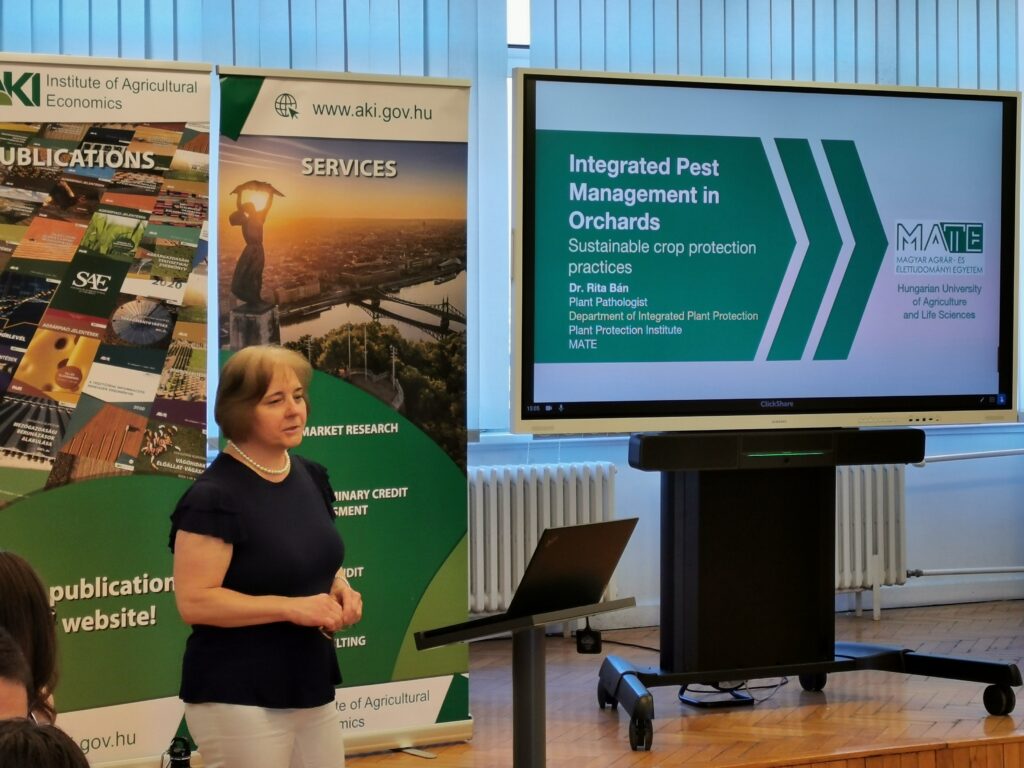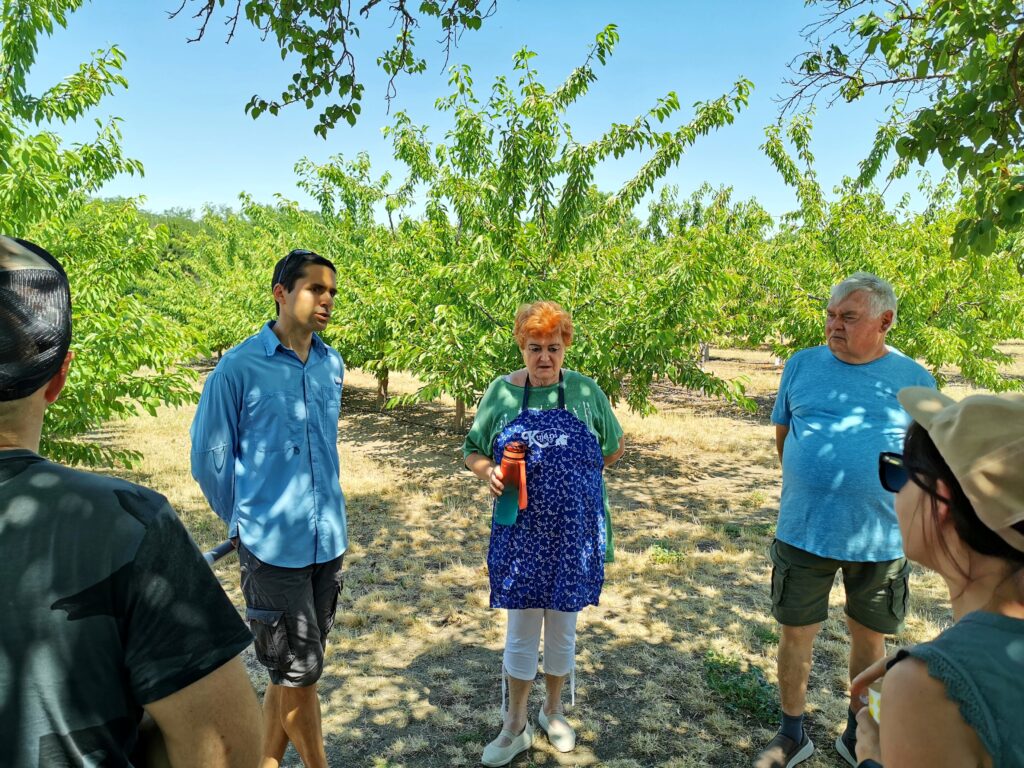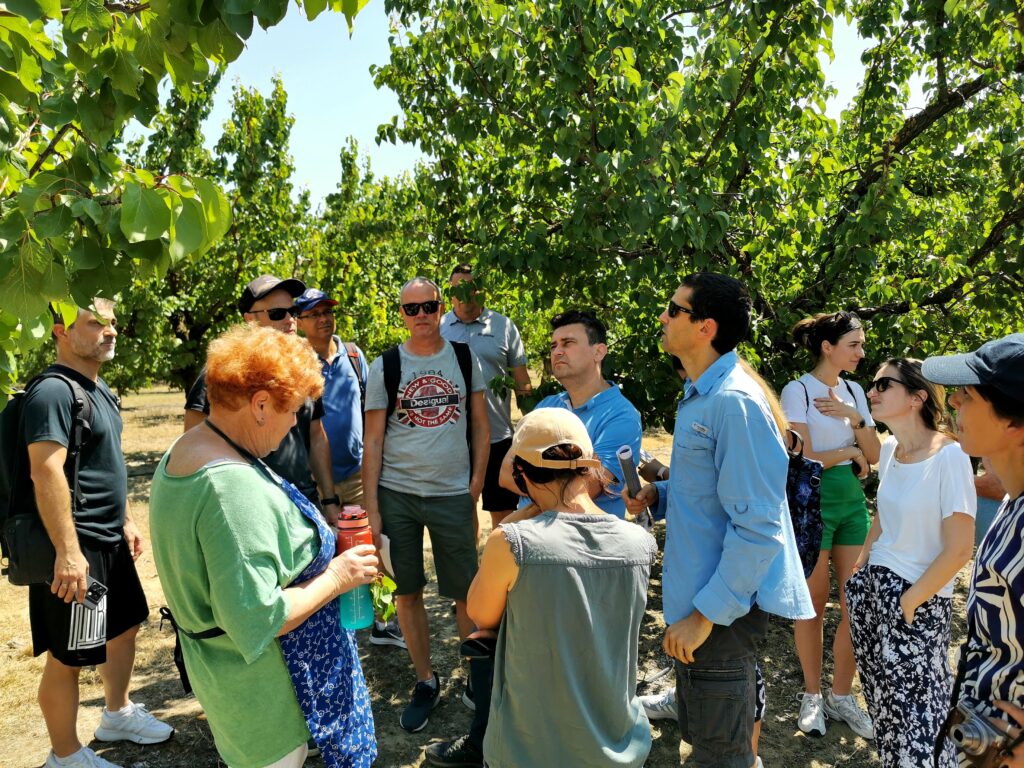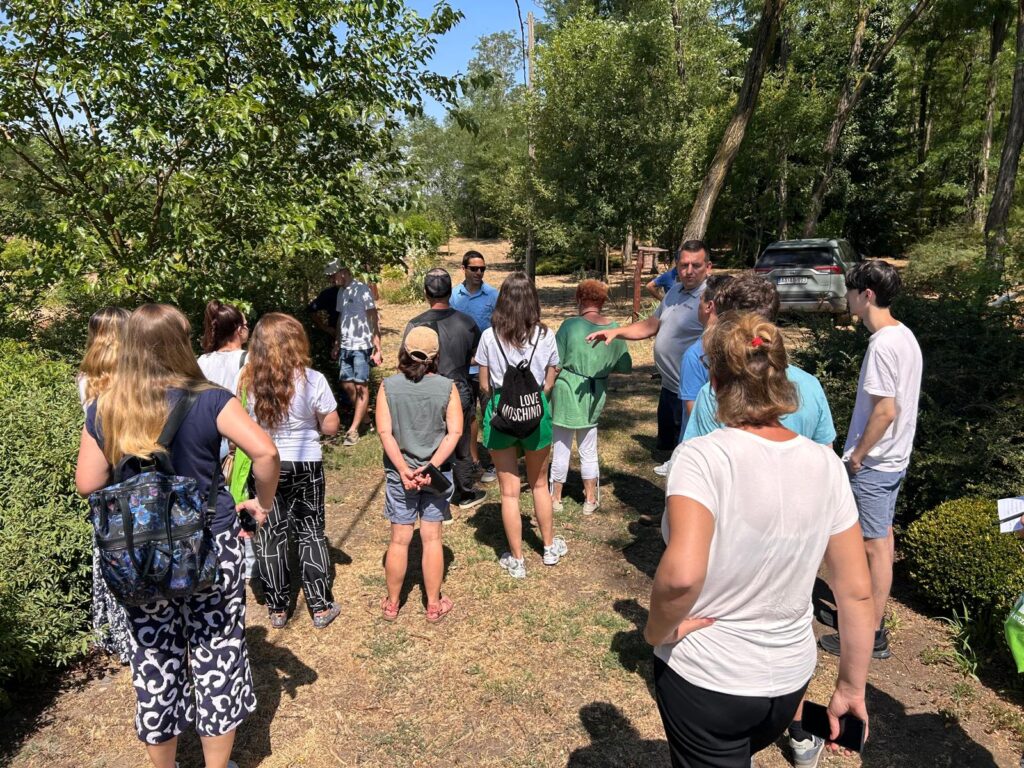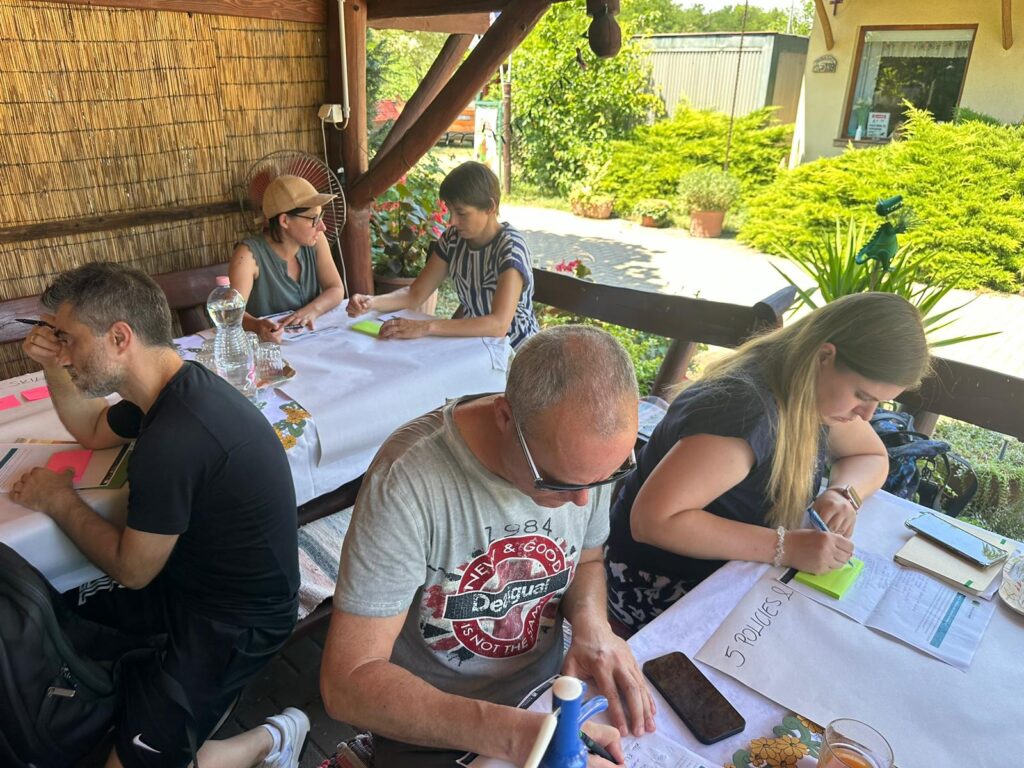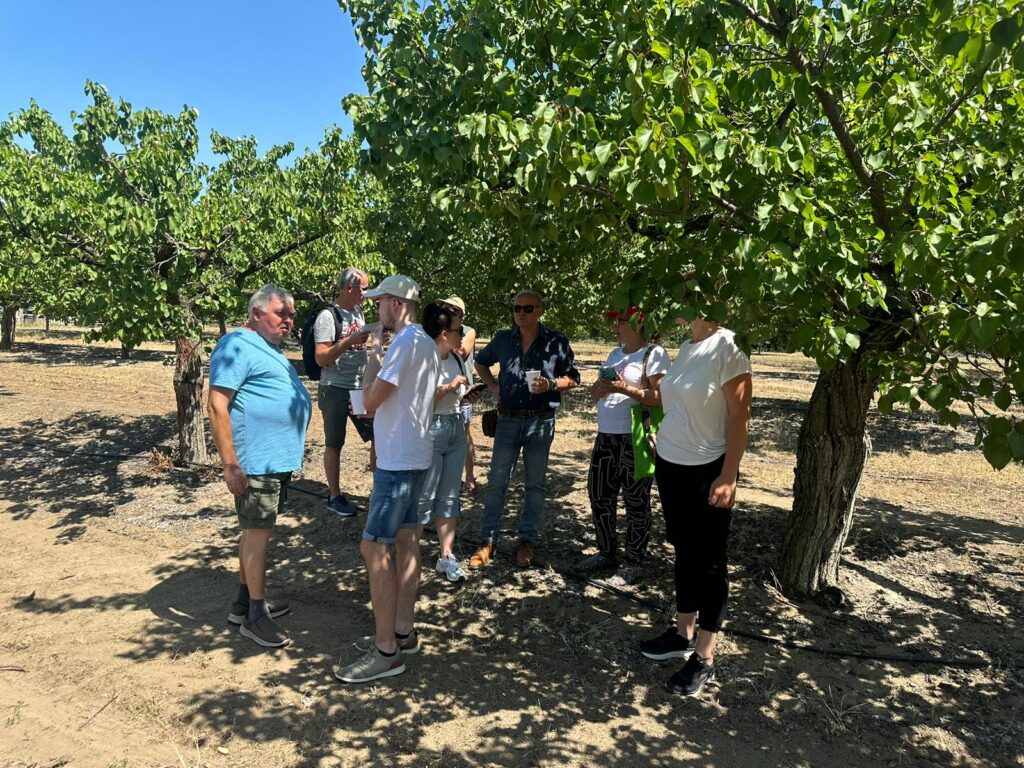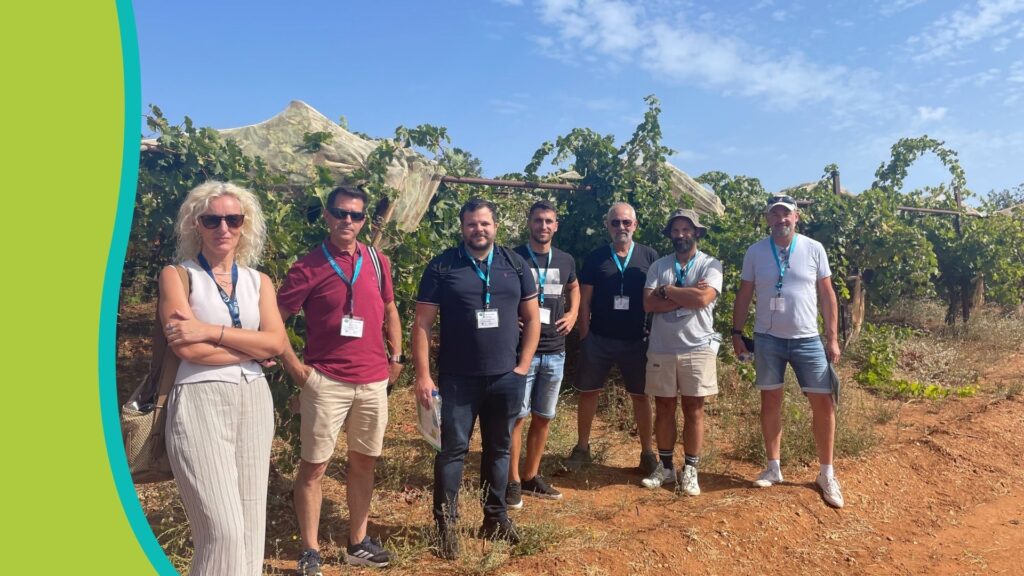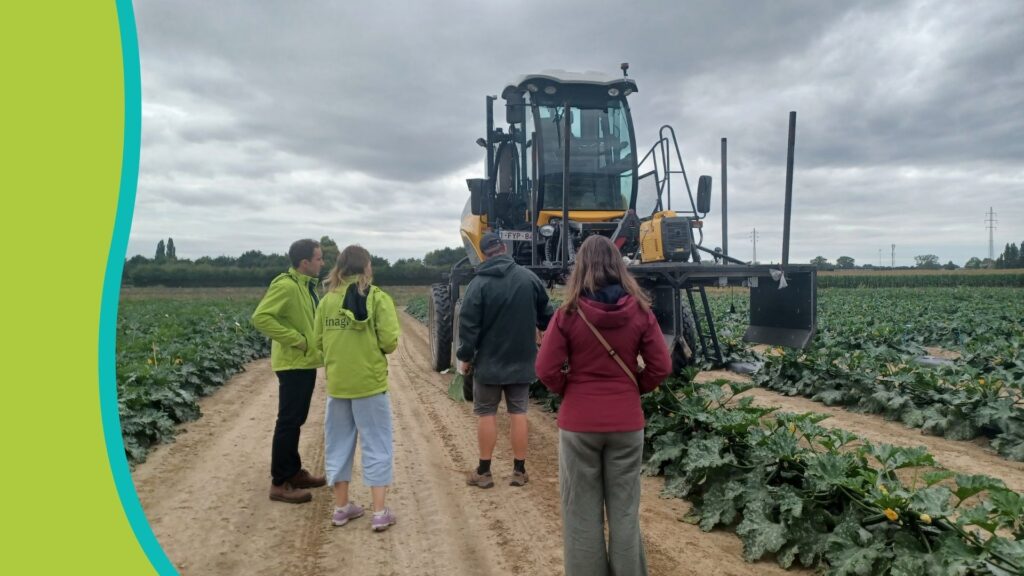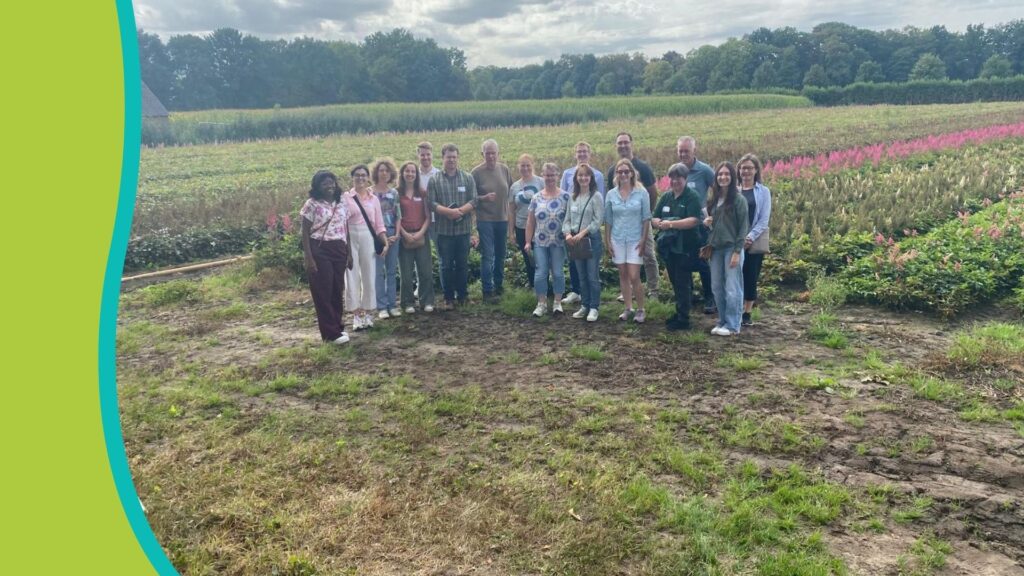On 3 July 2025, Hungary hosted a major cross-visit organised by AKI, welcoming 17 participants from Austria, Bulgaria, Cyprus, Hungary, Romania, and Slovakia. The visit focused on innovative Integrated Pest Management (IPM) solutions and biological methods designed to reduce pesticide use in stone fruit orchards. The group had the opportunity to explore these techniques directly with Kujáni László and Kujáni Olga, whose orchard has become a reference point for sustainable fruit production.
A Holistic IPM Approach for Stone Fruits
The Novel Approach showcased during the visit integrates multiple biological solutions to protect crops while reducing chemical inputs. A key component is the use of Melius oil, a treated rapeseed oil that forms a flexible protective layer on foliage and fruit. This layer improves resistance to cracking, a major issue in stone fruit production.
Another central element is SteriClean, a bacterial fertiliser applied primarily after rainfall to combat anthracnose. Because of its oil content, SteriClean reduces moisture in cell walls, preventing fungal spores from developing. The farmers complement these biological tools with additional IPM strategies, including meteorological monitoring for forecasting pest and disease risks and encouraging biodiversity by integrating beneficial organisms from surrounding forests, fields, grasslands, and ponds.
Farm Context: Dry Climate and Sandy Soil
The orchard covers 30 hectares and is located in a dry, semi-desert area with sandy soils. The production focuses on cherries, sour cherries, plums, and apricots—crops that present unique challenges under such climatic conditions. The farm’s context makes biological alternatives particularly valuable, as they help maintain plant resilience in harsh environments.
Resources Needed for Implementation
To adopt this Novel Approach, the farm relies on a combination of technical tools such as a modern spraying system, the SteriClean app, and a weather station. Knowledge is equally important: training in agronomy, biological products, and IPM principles forms the backbone of successful implementation.
Challenges in Adapting the Approach
Adoption can take time, especially for farmers with limited experience in biological plant protection or lacking technical knowledge. The transition requires commitment and willingness to learn. Nevertheless, the core cropping system remained intact; the main modification involved introducing biomass plants and diverse species to attract beneficial insects and improve ecosystem balance.
Benefits Observed in the Orchard
The use of biological and IPM products has allowed the farmers to produce differentiated, higher-value fruits that appeal to markets seeking safer, more sustainable options. Biodiversity within the orchard has increased noticeably, enhancing ecological resilience. The innovative practices have also drawn attention from researchers, students, and professionals, resulting in regular farm visits and collaborations that further elevate the orchard’s profile.
Difficulties and Market Challenges
Despite the agronomic benefits, economic challenges persist. Market conditions are demanding, and producing stone fruits profitably without subsidies remains difficult. These financial pressures highlight the need for supportive policies and stable markets for biologically produced fruits.
Plans for the Future
The farmers aim to gradually convert the orchard to fully organic production. Their experience so far has reinforced their belief that biological plant protection is a viable, long-term strategy—one that aligns with consumer expectations and environmental priorities.
Advice from the Host Farmers
According to Kujáni László and Kujáni Olga, the key to successful adoption is continuous learning, consistent practice, and dedication. Knowledge sharing and ongoing education are essential to mastering biological tools and strengthening confidence in the transition away from conventional pesticides.
Infrastructure and Training Needs
Participants noted several limitations relevant to Hungary and other countries: water scarcity, labour shortages, and a general lack of digital skills. Increased access to specific markets for IPM and biological products is also needed. Support through CAP instruments, such as advisor vouchers or farmer coupons, could play an important role in improving adoption.
Training is equally important. IPM certification could enable farmers to access higher-value markets, and peer-to-peer learning was highlighted as one of the most effective pathways for transferring knowledge and building trust in new approaches.
Participants’ Feedback
Feedback from participants was overwhelmingly positive. They expressed strong appreciation for the farmers’ commitment to innovation and for the practical demonstration of how biological and IPM methods can be successfully integrated into commercial orchard production. The visit provided valuable insights into sustainable crop protection in challenging climatic and soil conditions.

